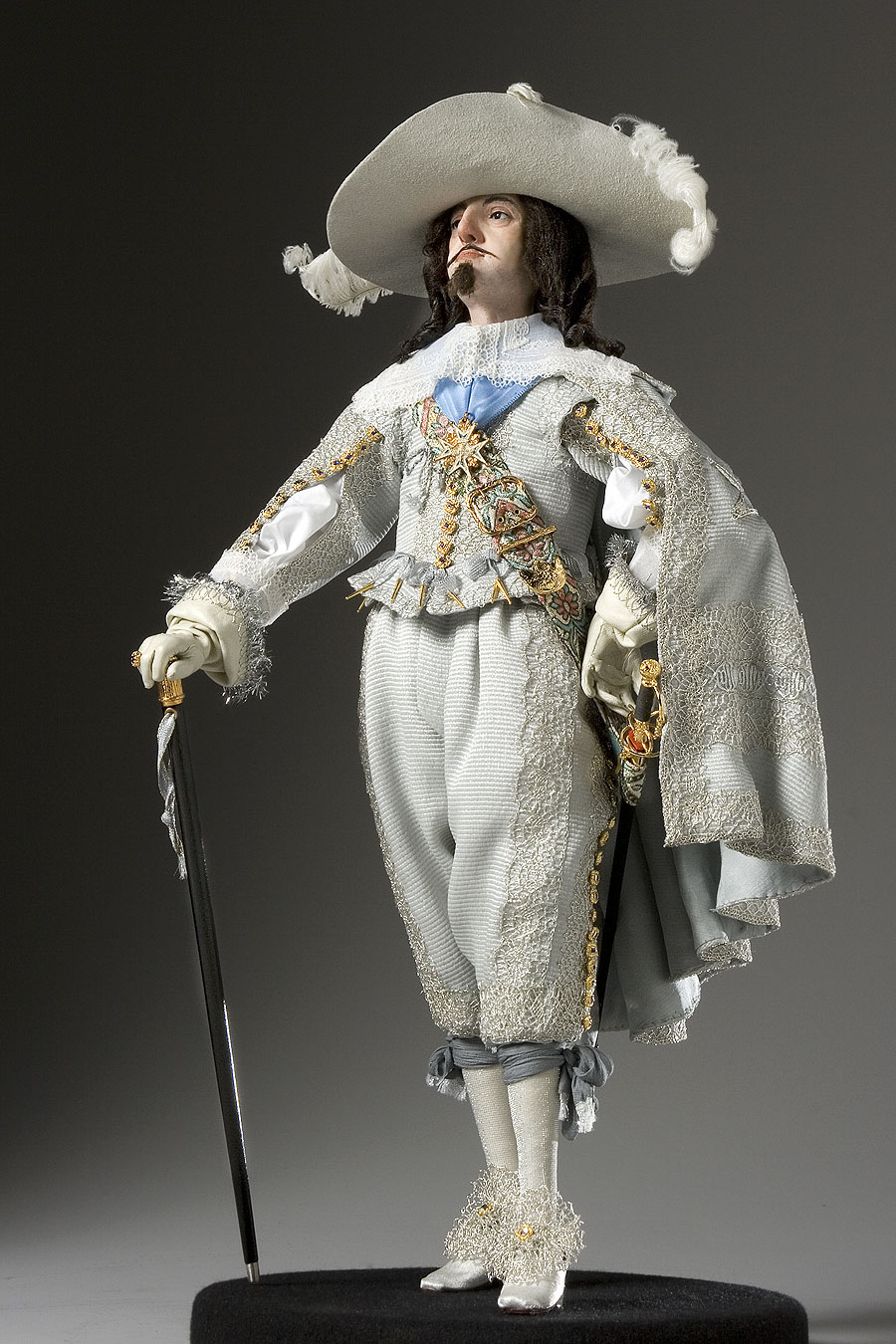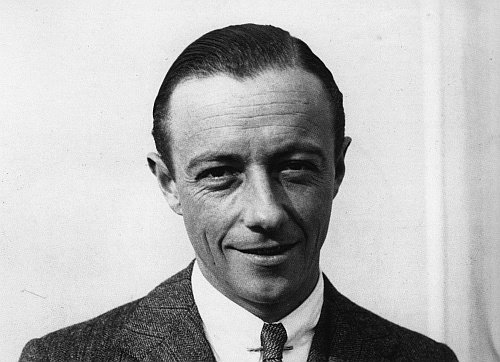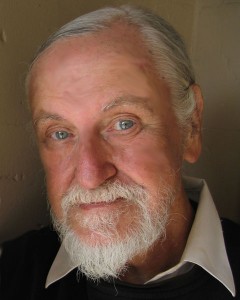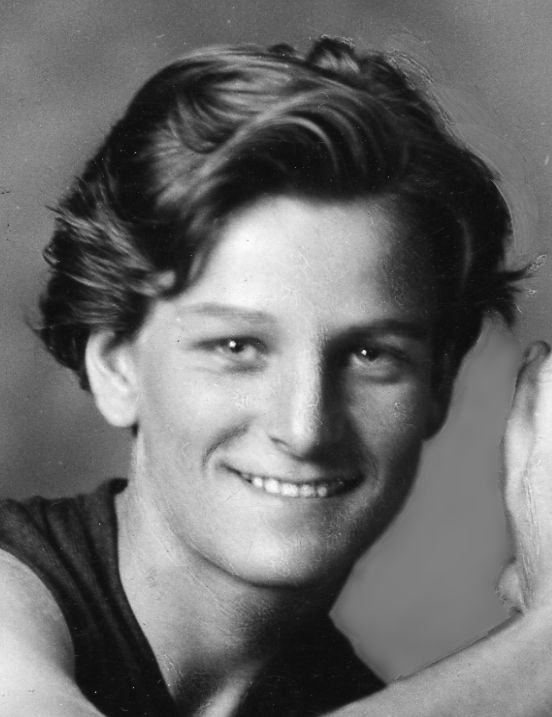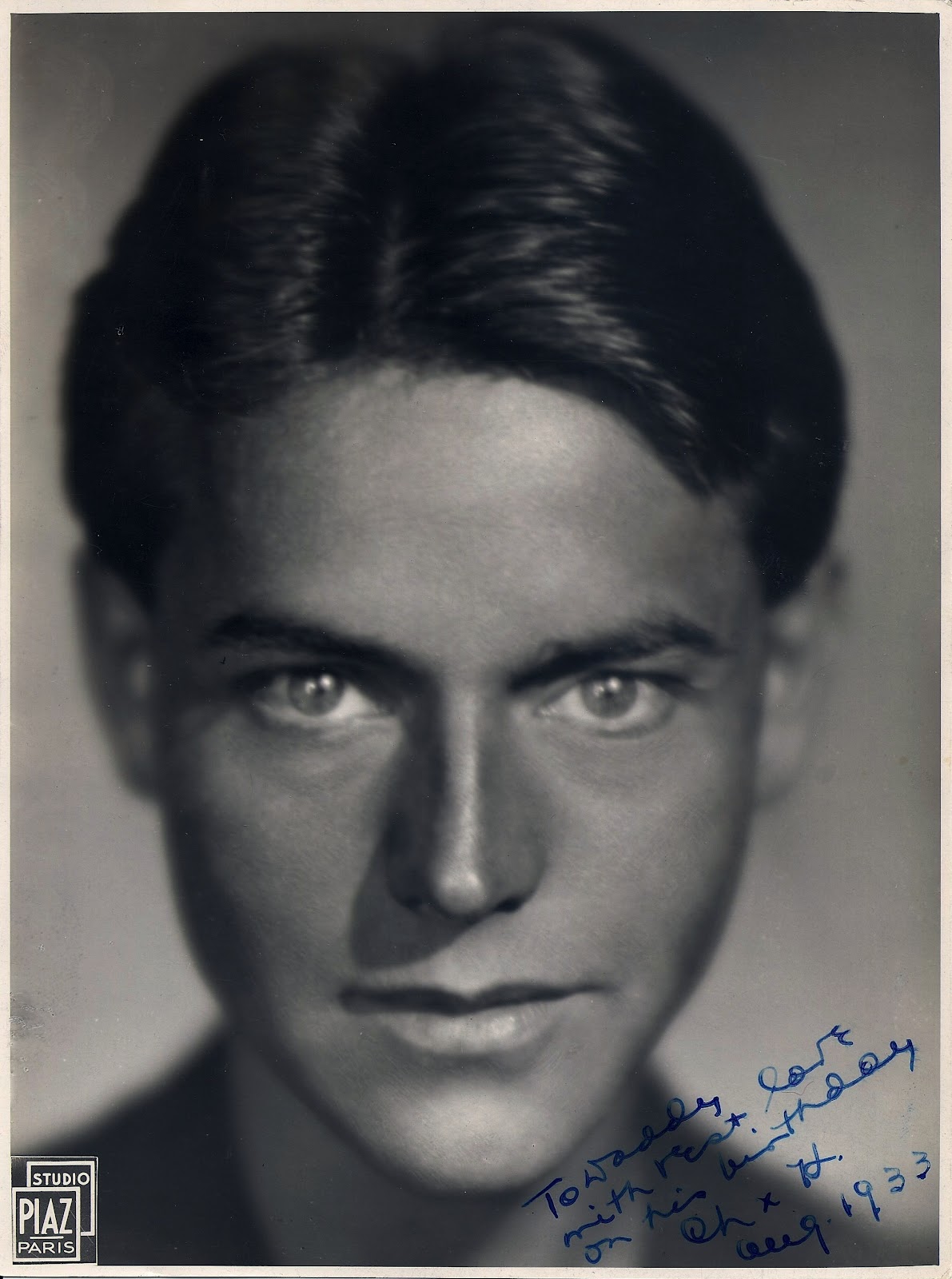|
Gay Wisdom for Daily Living brought to you by White Crane Institute ͏ ͏ ͏ ͏ ͏ ͏ ͏ ͏ ͏ ͏ ͏ ͏ ͏ ͏ ͏ ͏ ͏ ͏ ͏ ͏ ͏ ͏ ͏ ͏ ͏ ͏ ͏ ͏ ͏ ͏ ͏ ͏ ͏ ͏ ͏ ͏ ͏ ͏ ͏ ͏ ͏ ͏ ͏ ͏ ͏ ͏ ͏ ͏ ͏ ͏ ͏ ͏ ͏ ͏ ͏ ͏ ͏ ͏ ͏ ͏ ͏ ͏ ͏ ͏ ͏ ͏ ͏ ͏ ͏ ͏ ͏ ͏ ͏ ͏ ͏ ͏ ͏ ͏ ͏ ͏ ͏ ͏ ͏ ͏ ͏ ͏ ͏ ͏ ͏ ͏ ͏ ͏ ͏ ͏ ͏ ͏ ͏ ͏ ͏ ͏ ͏ ͏ ͏ ͏ ͏ ͏ ͏ ͏ ͏ ͏ ͏ ͏ ͏ ͏ ͏ ͏ ͏ ͏ ͏ ͏ ͏ ͏ ͏ ͏ ͏ ͏ ͏ ͏ ͏ ͏ ͏ ͏ ͏
|
|
||||
| This Day in Gay History | ||||
September 27Born 1601 - KING LOUIS XIII OF FRANCE born (d. 1643) also Louis II of Navarre, called the Just (French: le Juste), ruled as King of France and Navarre from 1610 to 1643.There is no evidence as to whether or not Louis had lovers, but persistent rumors insinuated that the King may have been homosexual or bisexual. Tallemant des Réaux, in his Historiettes, gives quite explicit (but second hand) descriptions of what happened in the king's bed. And let's not even talk about what was happening in the King's closet! On November 9, 1615, aged a mere 14, Louis XIII was married to a Hapsburg Princess, Anne of Austria (1601–66), daughter of King Philip of Spain (1578–1621). This marriage followed a tradition of cementing military and political alliances between the Catholic powers of France and Spain with royal marriages. Their sexual relationship did not begin (other than the consummation of the wedding) until 1619 (when he was a strapping 18). The marriage, like many Bourbon-Habsburg relationships, was only very briefly happy, and the King's duties often kept them apart. After 23 years of marriage and four miscarriages, Anne finally gave birth to a son in 1638. Quelle domage! 1898 - VINCENT YOUMANS, American composer and producer, born (d. 1946) Youmans was born in New York City and worked as a runner for a Wall Street brokerage firm. He was drafted to fight in WWI. He took an interest in the theater when he produced troop shows for the Navy. After the war he was a Tin Pan Alley song plugger and a rehearsal pianist, and collaborated with lyricist Ira Gershwin on the score for Two Little Girls in Blue, which won wide acclaim. His next show, with lyrics by Otto Harbach and Oscar Hammerstein II, was Wildflower. His most enduring success, was No, No, Nanette, with lyrics by Irving Caesar. After Oh Please, Hit the Deck, Rainbow and Take a Chance, his career faded, in part due to heavy drinking. Youmans was painfully aware that many of his fellow songwriters ended up impoverished, and he was determined to avoid that fate. He spent a substantial amount of his songwriting royalties on life insurance policies, intending to collect on the insurance if his songwriting talents ever failed. Eventually, when he decided to retire and collect his insurance, he learned that the insurance companies would not pay off unless Youmans was physically incapable of earning a living: as long as his songs were performed or published, Youmans would not be deemed incapacitated. Consequently, in the mid-1930s, Youmans ceased to work professionally. He continued to write songs but did not submit them for performance, choosing to accumulate them as unpublished manuscripts. In his last years, after collecting most of his insurance money, Youmans longed for the limelight again. An attempted comeback with a ballet revue in 1943 was a commercial and artistic failure. The two hit songs from No, No, Nanette, "Tea for Two" and "I Want to be Happy" are considered standards. 1937 - ROBERT PATRICK, American playwright, born; This Gay playwright, poet, lyricist, short story writer and novelist was born Robert Patrick O'Connor in Kilgore, Texas. This is how the playwright Lanford Wilson begins his introduction to Robert Patrick’s Cheep Theatricks (yes, the author’s name is part of the title): “Bob told me this introduction should begin, ‘Bob Patrick’s plays are stars shooting across the cobalt night sky – snow-flakes that for a second enhance the eyelashes of the blushing Muse!” or some such. But I really can’t capture the preposterous pop jargon that Bob nearly invented. If I did begin this introduction that way, I couldn’t finish it – not the way he would.” There’s a lot in that small paragraph, even though Wilson goes his own way after dropping it, telling us about Bob’s life in the theater – how he’s done everything from act and sing and direct to tending the door, running the lights, mop the floor, and for all we know, wash the clothes of indigent actors appearing in his plays. These are the facts, but the real Robert Patrick is in that first paragraph. For Patrick is right. His plays are shooting stars. They burn bright, brilliant, but only for a moment, retained in memory. And they are snowflakes, as many and as dazzling as the stars, no two the same. And Wilson is right to find Patrick’s language impervious to imitation. He invents the right sentence for the right occasion, and if there’s only one that’s right, he’ll find it, quickly (for he is very very fast), efficiently (for he is very very intelligent), and humorously (he is very very funny). He is also always telling you what to do (notice Wilson’s first sentence.) You’re rarely aware of his bossiness in his plays because his messages are subliminally told. Ask anyone who has just emerged from a Patrick play what he has ordered them to do and they’ll know. New York’s most produced playwright wants us simply to be good to one another, and has found a thousand star-and-snowflake ways to tell us how. Robert Patrick is the author of over 60 published plays. His first, The Haunted Host, was produced in 1964 and premiered at the Caffe Cino. Mr. Patrick refused the offer of Neil Flanagan, the Cino's star performer, to play the title role (because Flanagan had played Lanford Wilson's Gay character, Lady Bright) and by default wound up appearing in the play himself with fellow playwright William M. Hoffman. During the 1960s, Mr. Patrick was a pioneer in the Off-Off-Broadway movement and Gay theater with over 300 productions of his plays being held during this decade in Manhattan alone. He won the "Show Business" Award in 1969 for Joyce Dynel, Salvation Army, and Fog. That same year his play, Camera Obscura was produced on PBS, starring the lovely Marge Champion. A 1974 production of Haunted Host marked the first time Harvey Fierstein appeared onstage as a male. Years later, Fierstein included a recording of Patrick's monologue, Pouf Positive on his CD, "This Is Not Going to Be Pretty. Positive was also filmed by Dov Hechtman in 1989. The year 1974 saw international success for the play Kennedy’s Children, earning actress Shirley Knight a Tony award, and also the first season of Gay theatre in the U.K., to which Mr. Patrick contributed three plays. Mister Patrick toured high schools and high school theater conventions nationwide for ten years on behalf of the International Thespians Society. My Cup Runneth Over (1976) was commissioned by Marlo Thomas, for herself and Lily Tomlin, but their projected special never happened. The play went on to become Mister Patrick's most produced. T-Shirts, first produced in 1979 and starring Jack Wrangler, was later chosen as the opening piece for William M. Hoffman's Gay Plays: A First Anthology. Blue is For Boys was the first play about Gay teenagers, and weekends in honor of the play were declared by Manhattan borough presidents in 1983 and 1986. The Trial of Socrates was the first Gay play presented by the City of New York. Hello Bob is an account of Mr. Patrick's experiences with the production of Kennedy's Children. It was the last play he directed before leaving New York. Other works by Robert Patrick include Untold Decades (1988), a history of Gay male life in the U.S. told in a humorous vein, and Temple Slave, a "totally romanticized" novel about the early days of Off-Off Broadway and Gay theatre. He has also ghostwritten several screen- and television plays, contributed poems and reviews to Playbill, FirstHand, and Adult Video News, and had short stories included in numerous anthologies. He has also appeared in the documentary Resident Alien with Quentin Crisp and also in the videos O is for Orgy: The Sequel, and O Boys: Parties, Porn, and Politics, both produced by the O Boys Network. Happy Birthday Robert! Died 1956 - BABE DIDRICKSON ZAHARIAS, American athlete died (b. 1911) Zaharias gained world fame in track and field and All-American status in basketball. She played organized baseball and softball and was an expert diver, roller-skater and bowler. She won two gold medals and one silver medal for track and field in the 1932 Los Angeles Olympics. Zaharias broke the accepted models of femininity in her time, even the accepted models of female athleticism. Although petite, only 5'5", she was physically strong and socially straightforward about her strength. Although a sports hero to many, she was also derided for her "manliness." She died ten years before the Second Wave of Feminism altered the social landscape of the United States and made women athletes, such as Billie Jean King, more acceptable. Zaharias now has iconic status, with a museum dedicated to her, and a golf course she owned given landmark status. Despite her marriage to George Zaharias, there is keen historic interest in her from the modern Lesbian community. In 2007, Lesbian playwright Carolyn Gage started working on a full-chorus, full-orchestra musical about Zaharias (who is thought by some to have been a Lesbian) called Babe. 2002 - CHARLES HENRI FORD, American poet, filmmaker, photographer, revolutionary, provocateur and bon vivant, died (b: 1913); Born in Brookhaven, Mississippi, he dropped out of high school and by age 16 he had started his first magazine, Blues (subtitled "A Bisexual Bimonthly" - Ford was openly bisexual). Actress Ruth Ford (1911-2009) was his sister and only known sibling. Not long after, he became part of Gertrude Stein’s's salon in Paris, where he met Natalie Barney and Marie-Louise Bousquet and became friends with Man Ray, Kay Boyle, Janet Flanner, Peggy Guggenheim, Djuna Barnes and others of the American expatriate community in Montparnasse and Saint-Germain-les-Pris. He went to Morocco in 1932 at the suggestion of Paul Bowles, and there he typed Barnes' just-completed novel, Nightwood (1936), for her. With Parker Tyler, who would later become a highly respected film critic, he co-authored The Young and Evil (1933), an energetically experimental novel with obvious debts to fellow writer Djuna Barnes, and also to Gertrude Stein, who called it "the novel that beat the Beat Generation by a generation". In a series of short, episodic chapters, the novel portrays a collection of young genderqueer artists as they write poems, have sex, move in and out of cheap rented rooms, and duck into the neighborhood's many speakeasies. The characters' gender and sexual identities are presented with a candor and artfulness that was unique for the time; it was written concurrently with New York's Pansy Craze, when the city's popular culture was bowdlerizing homosexuality for entertainment purposes. Nonetheless, it was this candor even more than the novel's surrealism that led to its rejection by several American and British publishers. It was picked up by the Obelisk Press in Paris. Ford returned to New York City in 1934 and brought with him Pavel Tchelitchew, who would be his life partner until the latter's death in 1957. Ford's circle at the time included Carl Van Vechten, Glenway Wescott, George Platt Lynes, Lincoln Kirstein, Orson Welles, George Ballanchine and e.e. cummings. Friends from abroad included the Gay glitterati: Cecil Beaton, Leonor Fini, George Hoyningen-Huene and Salvador Dali. | ||||
|
|8|O|8|O|8|O|8|O|8|O|8|O|8|O|8| Gay Wisdom for Daily Living from White Crane Institute "With the increasing commodification of gay news, views, and culture by powerful corporate interests, having a strong independent voice in our community is all the more important. White Crane is one of the last brave standouts in this bland new world... a triumph over the looming mediocrity of the mainstream Gay world." - Mark Thompson Exploring Gay Wisdom & Culture since 1989! |8|O|8|O|8|O|8|O|8|O|8|O|8|O|8| | ||||
|
|||||
|

